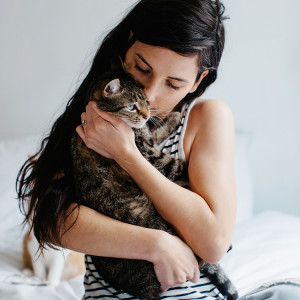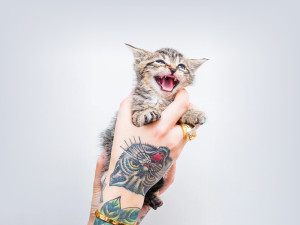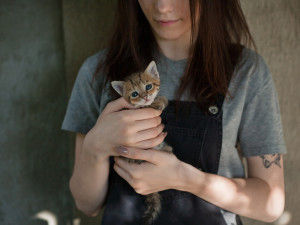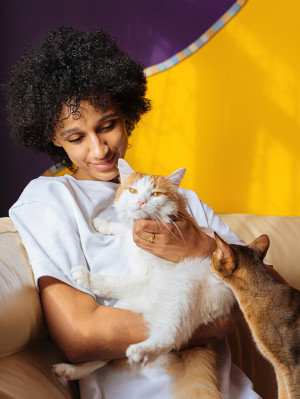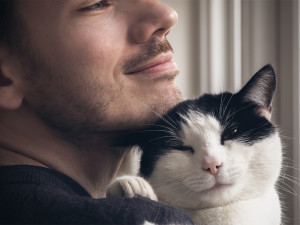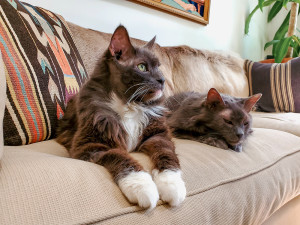5 Signs You Should Get Your Cat a Cat
People, let me tell you ’bout (your cat’s) best friend.
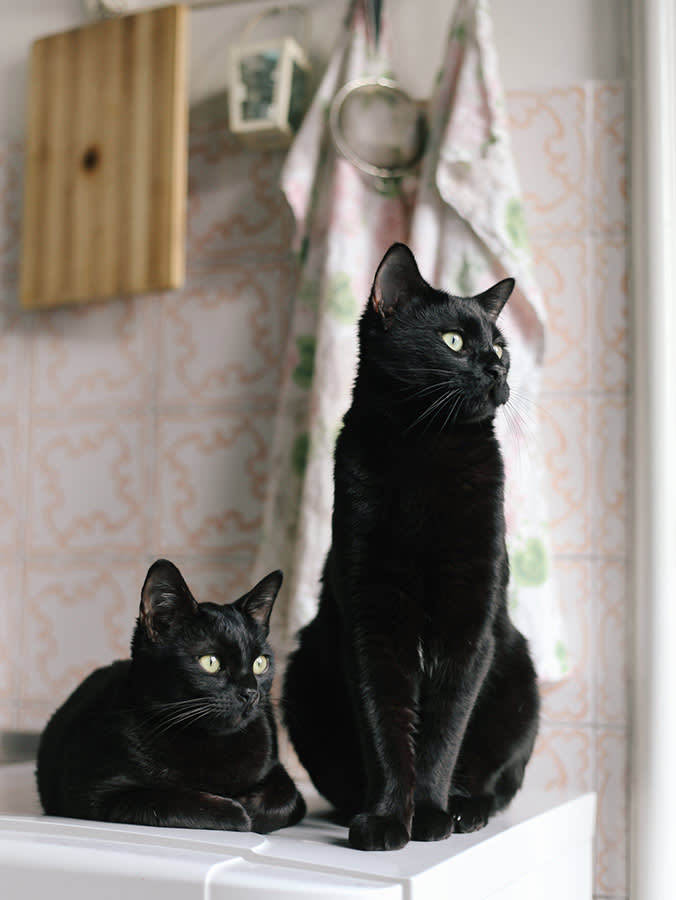
Share Article
Clearly, you’re willing to do anything to make your cat happy, but there’s one thing you can’t do, and that’s...be a cat. (Nice try with those fake ears, though.) That means when it comes to giving them cat company, you’ll have to outsource. But should you get another cat to be a buddy for the cat you already have? If your cat likes other cats and you already want another one, why not?
But if you are on the fence yourself but wondering what’s best for your cat, how can you tell if you cat may need a feline companion? Here are the top five clues that it would be wise to add a feline to your family for the sake of your cat (with the full understanding that you will benefit from the extra love and friendship, too).

littleKin™ is Kinship’s home just for puppy and kitten parents. Bop over to check out expert advice, new pet tools, and special deals—all curated for your newest family member.
opens in a new tabYour cat wants constant attention.
Neediness and clinginess are among the most common signs that your cat needs a feline companion. If they are meowing constantly and seeking your attention (All. The. Time.) they may be letting you know they need a friend who is available constantly. Many of us are only able to be with our cats before and after work and on the weekends (Someone has to earn the money for treats and all the best cat toys.) If your cat is following you around and won’t leave you alone even after long play sessions or lots of petting, you may have a cat who needs a feline companion.
You are blessed with a playful and affectionate cat.
If this describes your cat’s personality, a feline companion may be a great way to improve their quality of life — no matter how good it already is. Social butterflies (of every species!) frequently adore having another lovebug around, and there’s nothing quite like a member of your own species to make you feel loved, understood, and happy. That, in no way, takes away from the loving, fulfilling relationship you have with your cat! Cats have long been misrepresented as solitary, but they are social creatures. Allowing them to share their homes and their lives with another kindred spirit is a special gift you can provide for them.
A cat has left your household.
When a cat departs, those they leave behind often miss their old friend. Whether a cat has left your home because they were a foster who has been adopted, because a roommate moved out with that cat, or because they have died, their companion cats miss their old friend and grieve that relationship. While no relationship can replace a previous friendship, a new pal can help fill the void.
Your cat has developed one or more behavioral changes.
If your cat is acting in a different manner than usual, the reason may be a lack of feline interaction. Common behavioral changes associated with a cat who could do with a feline companion include a lapse in grooming or excessive grooming, increased destructiveness around the house, sleeping more than usual opens in a new tabor being unable to settle down at all, listlessness, overeating or refusing to eatopens in a new tab, and excessive vocalizingopens in a new tab. No single behavioral change is a sure sign that a friend will help, and ruling out any medical reasons for the change is an essential first step. However, if there is not a physical cause behind a behavioral change, introducing a new cat to your family may help.
The cat in your life is a kitten.
Experts agree that it is best to adopt kitten in pairs (or even threes!) but not alone. The behavioral challenges of “single kitten syndromeopens in a new tab” can generally be avoided by raising kittens with other kittens. Kittens benefit from having a feline companion, and because they are less likely to biteopens in a new tab, scratch, have litterbox issues, vocalize excessively, or demand your attention constantly if they have a friend around, you also stand to benefit.
If these descriptions fit your situation and you are open to providing a feline companion for your cat, you’re in luck because kitten seasonopens in a new tab is around the corner. Kitten season refers to the warmer months of the year — March or April or even a bit later depending on where you live — when shelters, rescues, and veterinarians are inundated by kittens. It’s when the weather improves following the winter that most kittens are born, but it’s always a challenge to find enough homes and families to foster or adopt them all. So, if your cat needs a feline companion, remember there’s no better time than the spring to add a new cat to the family!
You love your cat very much and do right by them in every way you can, but you can’t always do everything on your own. You may require the help of another cat, and that’s worth celebrating. You and your cat both gain a new friend while offering that new friend a home that is filled with love just waiting to be given.

Karen B. London, PhD, CAAB, CPDT-KA
Karen B. London, Ph.D., is a Certified Applied Animal Behaviorist and Certified Professional Dog Trainer who specializes in working with dogs with serious behavioral issues, including aggression, and has also trained other animals including cats, birds, snakes, and insects. She writes the animal column for the Arizona Daily Sun and is an Adjunct Professor in the Department of Biological Sciences at Northern Arizona University. She is the author of six books about training and behavior, including her most recent, Treat Everyone Like a Dog: How a Dog Trainer’s World View Can Improve Your Lifeopens in a new tab.
Related articles
![a tattooed person with curly red hair on a couch pets a brown and black cat]() opens in a new tab
opens in a new tabYour Cat Can Tell When You’re Stressed, Study Says
It’s all in their noses.
![]() opens in a new tab
opens in a new tabYour Cat Hates It When You Frown
According to a new study, cats know what their parents’ facial expressions mean. Just, uh, FYI.
![Black cat staring at a cat toy]() opens in a new tab
opens in a new tabHow to Play With Your Cat
Cat behaviorist Cristin Tamburo’s got a game plan.
![A woman with curly black hair sitting in front of a dark purple and yellow backdrop while looking down affectionately at her two cats sitting on her lap]() opens in a new tab
opens in a new tabHow to Build Your New Cat’s Trust in You
If your cat still approaches you with a figurative arched eyebrow of skepticism, try these tricks to put them at ease.
![cat snuggling man]() opens in a new tab
opens in a new tabWhat’s Your Cat’s Love Language?
Five surprising ways cats show affection (and how you can show it back), according to a cat behaviorist.
![Two senior cats laying on a couch]() opens in a new tab
opens in a new tabWhy Senior Cats Make the Best Roommates
Kitten, please! I adopted a couple of seniors because cats, like wine, only get better with age.
